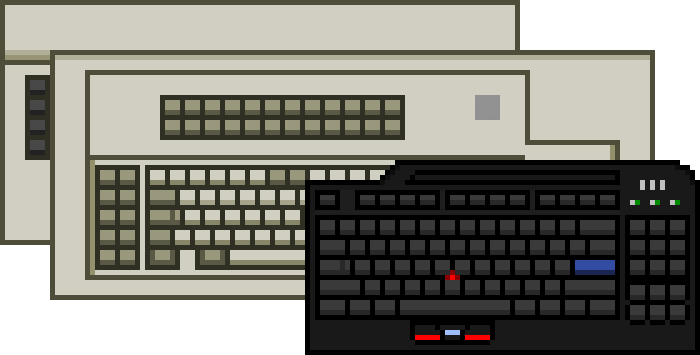P/N 61G2897 - Model M4-1 Keyboard Details & Specs
Provided by the ASK Keyboard Part Number Database
IBM Space Saver Keyboard
| Type | Model M4-1 Space Saver TrackPoint II Keyboard |
|---|---|
| OEMs or ODMs | Lexmark |
| Keyswitches | IBM buckling sleeves (M3/M4 rod-actuated type) |
| Earliest appearance | |
| Original keycaps | PBT with dye-sublimated legends |
| Cover colour | Pearl White |
| Branding | IBM grey oval badge |
| Feet | Rubberised single-setting flip-out feet |
| Protocol | IBM Mode 2 (scancode set 2) |
| Connection | Grey coiled-style detachable 6-pin SDL to dual 6-pin mini-DIN PS/2 cable |
| Number of keys | 85 |
| Form factor | Tenkeyless (compacted) |
| Layout & language | PC-style: ISO Arabic (ID 238) |
| Integrated pointing devices | TrackPoint II strain gauge pointing stick |
| Sources | Web: http:/ |
| Data last updated |

